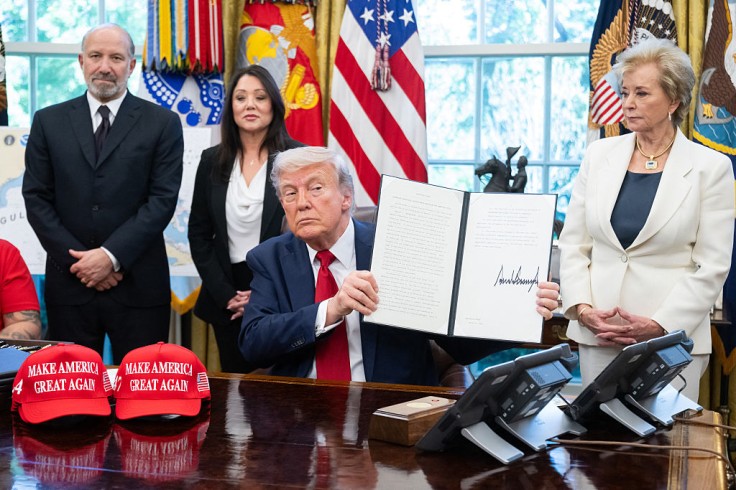Trump's Executive Order Targets College Accreditors, Sparks Debate Over Higher Education Reform
By
President Donald Trump has ignited a firestorm in higher education with an executive order signed on April 23, 2025, targeting college accreditors. The order takes aim at what the administration calls "ideological overreach" in universities, seeking to hold accreditors accountable, foster competition, and shift focus from diversity, equity, and inclusion (DEI) initiatives to student outcomes. For students, faculty, and administrators, this bold move could reshape campus operations and access to federal funding, sparking heated debate across the academic world.
Accreditors are the gatekeepers of higher education, evaluating colleges' academic quality and financial health to determine eligibility for over $100 billion in federal student loans and Pell Grants each year. Trump's executive order directs Education Secretary Linda McMahon to investigate accreditors for "poor performance" or violations of federal civil rights law, with penalties ranging from monitoring to loss of federal recognition. The White House argues that accreditors have pushed "divisive DEI ideology" at the expense of student success. "Instead of pushing schools to adopt a divisive DEI ideology, accreditors should be focused on helping schools improve graduation rates and graduates' performance in the labor market." McMahon said in a statement. The order also streamlines the process for colleges to switch accreditors and for new accrediting agencies to enter the field, aiming to break the grip of established organizations.
The order taps into conservative concerns that universities have become bastions of liberal ideology. Trump, who campaigned on rooting out "radical left accreditors," claims the system allows colleges to prioritize DEI over academic rigor. The directive calls for fostering "intellectual diversity" among faculty and developing programs that deliver "high-value" education. It also tasks the Justice and Education Departments with probing discriminatory practices in higher education, including in professional schools. For students, the implications are significant. Accreditation determines a college's access to federal aid, which funds scholarships, loans, and campus resources.
The order has sparked fierce debate. Over 200 college presidents, including leaders from Ivy League institutions, signed a letter condemning the administration's interference, citing threats to academic autonomy. Harvard University recently sued the Trump administration after it froze $2.2 billion in federal grants, calling the action "unprecedented overreach."
The executive order is one of seven education-focused actions signed this week, addressing issues like foreign funding transparency and AI in K-12 schools. But the accreditation reform is the most consequential for colleges, potentially affecting everything from tuition affordability to curriculum design. States like Florida and North Carolina, which require public universities to switch accreditors periodically, offer a glimpse of what's to come. These policies aim to disrupt entrenched accreditor influence but have raised concerns about instability.
As the Education Department begins implementing the order, universities and accreditors are bracing for a turbulent period. The push for new accreditors and stricter oversight could drive innovation, but it risks upending a system that, while imperfect, has long ensured educational quality.
© 2025 University Herald, All rights reserved. Do not reproduce without permission.








